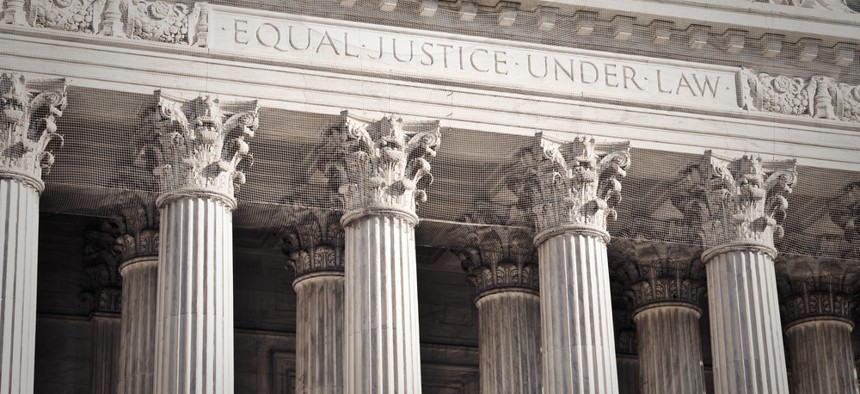
Brandon Bourdages/Shutterstock.com
Even Supreme Court Justices Cite 'Internet Facts' (Just Like the Rest of Us)
A new study finds that Supreme Court justices often cite briefs whose facts come from dubious sources.
Supreme Court justices could stand to do a better job checking their facts, and like most of society's ills these days, it's the Internet's fault.
Now, it's not as if the justices are scouring Wikipedia late at night to find citations for their opinions. But according to a new study described in The New York Times, they are relying on facts cited in submissions to the court that are barely more credible.
In the forthcoming paper for the Virginia Law Review, Allison Orr Larsen of the William & Mary Law School finds that the number of amicus curiae, or "friend of the court," briefs sent to the Supreme Court has risen by a whopping 800 percent in the last five years. That's an all-time high, and the justices, who can't be experts oneverything, are increasingly citing those briefs in their opinions.
But while their name might suggest otherwise, the amicus briefs are not exactly peer-reviewed studies or even official legal documents – they are glorified letters to the editor. Many of them are sent to the court by advocacy groups looking to sway the decision in their favor. And as such, many of the facts they cite come from dubious (read: online) origins.
The court is inundated with 11th-hour, untested, advocacy-motivated claims of factual expertise,” Larsen writes.
Larsen turned up examples in which Justices Samuel Alito, Anthony Kennedy and Stephen Breyer made factual citations that were impossible to verify. In Breyer's case, he cited a blog post from a blog that had been discontinued, the Times noted.
The findings led Kannon Shanmugam, a lawyer who argues frequently before the court, to muse to the Times:
The Supreme Court has the same problem that the rest of us do: figuring out how to distinguish between real facts and Internet facts."
Larsen concludes her paper by arguing that the court should institute safeguards into its process, starting with some basic fact-checking.
The Court seems hungry for factual information; it consumes it at a greater rate than the parties and the record can provide. But by turning to motivated interest groups to fill the need – and indeed relying on the amicus briefs themselves as evidence on factual claims -- the Court risks tainting its decisions with unreliable evidence. It is time to rethink the expertise providing role of the Supreme Court amicus, and to refashion this old tool for the new purpose to which it is currently being used."
(Image via Brandon Bourdages/Shutterstock.com)






